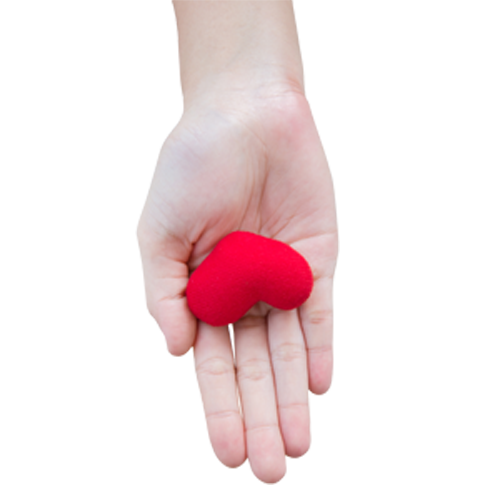The decision to become an organ or tissue donor is of paramount—or even vital importance! Giving life, what could be more gratifying?
What is organ donation?
There are two main types of organ donation, a living donation and donation after death. A living donation consists of authorizing the removal of one of the two kidneys or of part of the liver from a living donor. Because the human body can function with only one kidney and the liver grows back to its normal size within a year following the donation, the consequences are reduced for the donor.
Donation after death consists of authorizing the removal of organs or tissue in the case of neurological or cardiac determination of death, in other words, when the donor’s brain is dead and can no longer perform its normal functions, such as the ability to breathe and remain conscious or if the heart has stopped and there is no longer any blood flow. The implementation of various procedures allows the confirmation that the donor is in fact deceased and that everything has been done to save him/her.
Several organs can be donated such as the heart, lungs, kidneys, liver, pancreas and intestines. It is also possible to transplant tissue such as skin, bones, heart valves or certain parts of the eye.
Why should I become a donor?
Just under 1000 people in Quebec are waiting for an organ donation. These individuals depend on an organ transplant to ensure their survival or to significantly improve their quality of life. A single organ donor can save the lives of eight people. Additionally, the donation of tissue from a single donor can improve the health of several people.
The success rate of organ transplants is high. In fact, between 70 and 90% of organ recipients are still alive 10 years after the transplant, while several of them would only have survived for a few months without these donated organs.
Could I be a donor?
Everyone can donate their organs, regardless of their age or the condition of their health. The oldest organ donor in Quebec was 88 years old! When a donor dies, a medical team evaluates which organs and tissue can be removed according to their condition. Moreover, various criteria are taken into consideration, such as a history of smoking or alcohol consumption.
Myths and Realities
Agreeing to become a donor doesn’t mean that your body can be used for scientific purposes. In fact, your body can only be used for this purpose if your organs and tissue cannot be transplanted and if you specifically consented to it.
If you have decided to donate your organs or tissue, it will be easier for your family to comply with your wishes at the time of your death. However, if you didn’t make a decision while you were alive, your family will be asked to make a decision in your name. That’s why it’s important to make your wishes known to your loved ones about organ and tissue donation.
A body which has had organs and tissue removed can still be viewed at a funeral home. In fact, precautions are taken not to modify the body’s appearance during organ removal.
How can I become a donor?
There are three ways to notify your intention to donate your organs and tissue upon your death. First, you can sign a sticker designed for this purpose and place it on the back of your health insurance card. This sticker is available at Transplant Québec or can be obtained in some health institutions or public organizations. You can also register directly with the Régie de l’assurance maladie du Québec (RAMQ), by filling out a form, which is provided to you each time your health card is renewed. The third way, is to give the organ donor information to your notary.
Organ donation saves many lives and offers a better quality of life to many people. It also helps give a different meaning to death. Simply signing the back of your health insurance card, is a purely altruist act. Choosing to donate your organs is choosing to give life!

